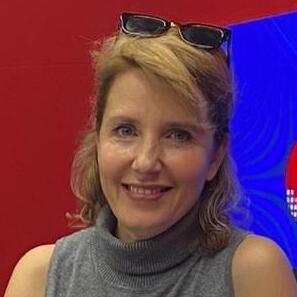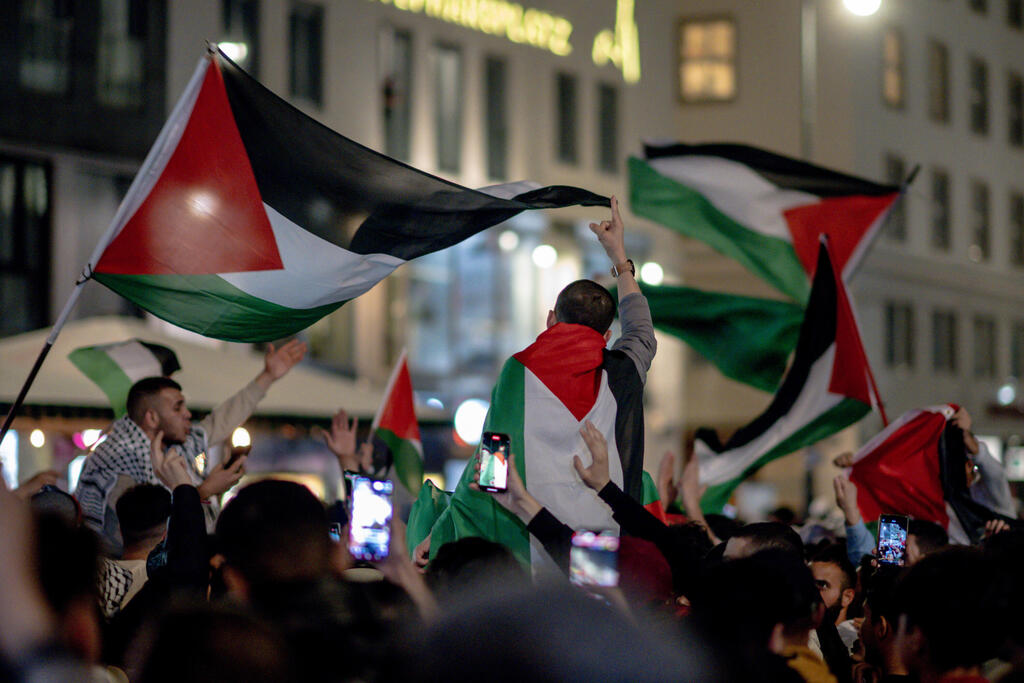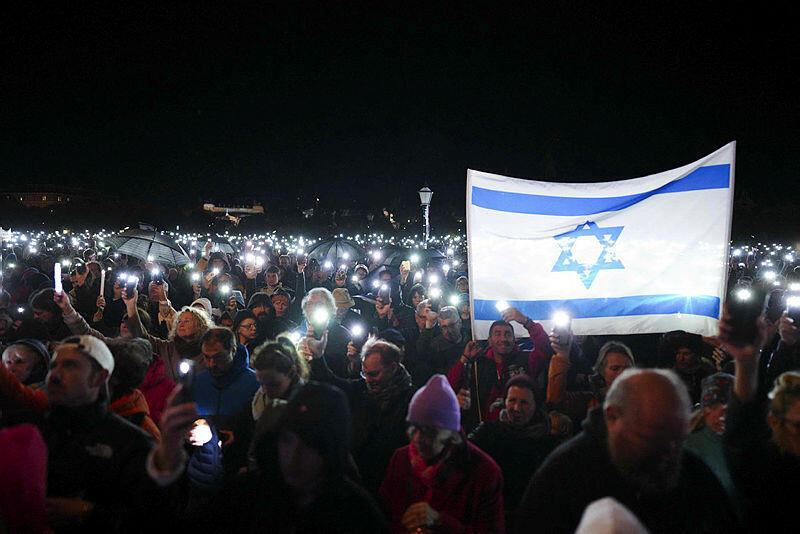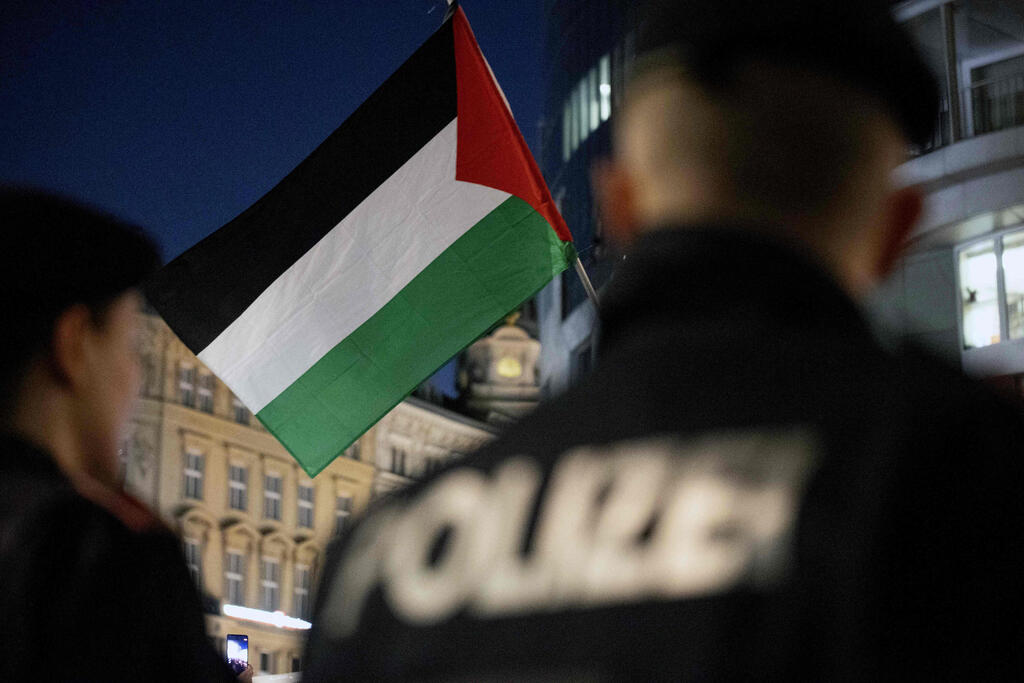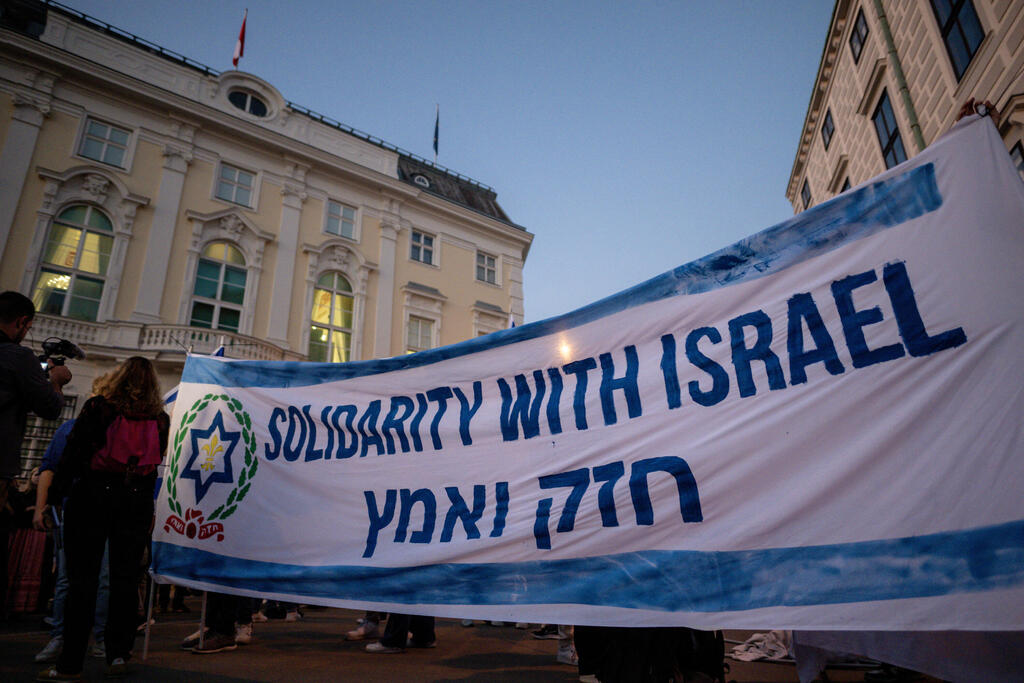Getting your Trinity Audio player ready...
As the world watches the war in Gaza unfold, its repercussions extend far beyond the battleground, affecting Jewish lives and safety in various countries amid an alarming rise in hate incidents targeting Jewish communities. Austria's 8,000-strong Jewish community was also not spared by the raging animosity toward Jews.
Dr. Jasmin Freyer, chair of the Jewish Community Committee in Austria, told Ynet in an interview that while Jews face growing hatred, the community enjoys protection from the government.
Interview with Dr. Jasmin Freyer, the chairman of the Jewish community in Vienna
(Credit: Artlist, Ido Erez, Yair Sagi, Satview)
"The government is protecting us here in Austria. The Jewish community works with the police and sometimes with the military police. We can protect ourselves as Jews here," she says.
"This is one of the conflicts we as Jews live in here in Austria. So, the government is absolutely behind us... we have had almost every day here pro-Palestinian manifestations, but they were very quickly forbidden by the government.
"Right now, if you say this slogan, 'from the river to the sea Palestine will be free,' which is a genocidal slogan because it calls for the extermination of Jewish people from the river of Jordan to the Mediterranean Sea, this one is forbidden in Austria. But we have seen several thousand people marching almost every day here in Austria, in Vienna, and also in other cities, screaming the slogan or going with Palestinian flags.
"The Austrian government takes a lot of measures. But it doesn't necessarily mean that civil society is following what the government does. Any protest can turn at any moment and become very violent. We have to watch out. We have to be always on our guard and be very careful."
Dr. Freyer, however, noted that many community members feel this protection is precarious amid escalating hatred and choose to hide any identifiable Jewish traits.
"I have friends who took off the symbols and who do not wear kippot on the streets but put a hat on top of the kippah. They are publicly hiding their Judaism because they fear something might happen," she says.
"The situation can turn on a dime. That's why I'm so happy that we have Israel because Israel is still for us Jews all over the world, a place we can go, even though Israel is very challenged and in danger. Right now I know that this is the place where I can go to."
She says that her love for Israel does not take away from her loyalty to her homeland. "I am patriotic for two countries. I love Austria, I'm Austrian at heart. I'm crazy about the mountains here. I love the city of Vienna. I feel very good. But on the other hand, I also love Israel, my spiritual home, and every year I'm in Israel, I bring my children with me. It's very important for me that they get to know the country and speak Hebrew. They are in Jewish movements, and these are very important things to me. And I think it's okay in today's world to feel a strong bond with two countries," she says.
5 View gallery
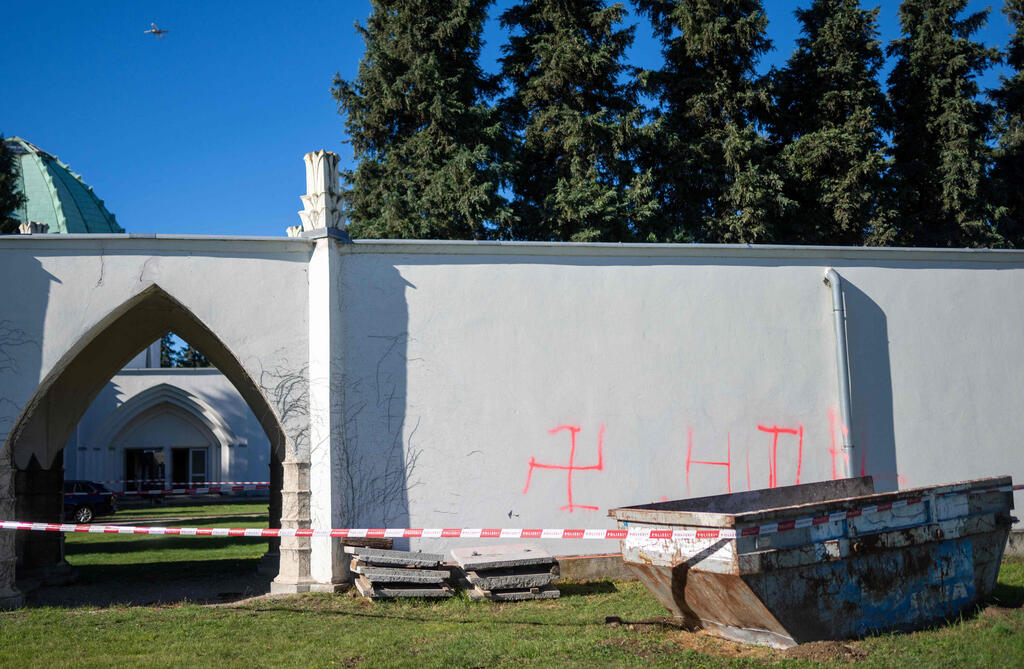

Swastikas daubed on one of the external walls of the Jewish section of Vienna's main cemetery
(Photo: GEORG HOCHMUTH / APA / AFP)
"Israel is the country that gives me protection. So what did I do personally during the war right now? I sent money to Israel. That's what I could do. That's my help, and the Jewish community of Austria sent out many newsletters, where they constantly gave bank accounts of several institutions and organizations that should and can be sponsored. So many people transferred money to Israel. Without Israel, we Jews are in deep danger."
Dr. Freyer asserts that the war in Israel transcends the Jewish state and the Jewish people, representing a broader struggle against radical Islam. "We know that the plan of radical Islam is not only for Israel. So really, the fight that we're holding here is not only for Israel and the Jewish people. It is much wider.
She also noted that social media has been rife with antisemitism since the war's outbreak. "It does huge damage to all of us. Europe has to be very careful. There is a lot of antisemitism. There is a lot of racism right now. Many right-wing extremist parties are climbing up, which I see also as a danger because it's a danger to democracy," she says.
"Many of these parties have political members who are extremist fascists, anti-democrats and antisemites. Europe needs to be very careful that it doesn't react also in an extremist way, and our aim must be to stay peaceful, tolerant and very democratic in taking care that we do not follow from one extremism into another extremism."
Dr. Freyer acknowledges that although a significant portion of the antisemitic abuse faced by the Jewish community comes from the local Muslim population, some of their Muslim compatriots have shown empathy and understanding following the October 7 attack.
"One of the first persons who called me after October 7, and asked me how I am, and how my sister was, was a Muslim woman," she says. "She's one of my closest friends. She called me and asked me how my sister was in Israel, and how I felt, and she told me that she thinks it's horrible what happened in Israel, and I am still in contact with her.
"She is a very close friend of mine, and she is a very religious Muslim woman. When I come to her home, and I go very often to her home, our children are best friends. On her table, there is a Quran. She reads very often the Quran, and still, I am very Jewish. And when you enter my house, you see the Talmud. And yet, we two women, even though we have different religions, love each other, our children love each other, we are friends, we ask ourselves, and we ask the other one how we are. We reflect on each other. If she tells me things about her Muslim religion that are working on her, I share with her my thoughts. We're having a dialogue of religion, and this is possible, and if this is possible on such a low level as women to mothers with children, this must be also possible on a political stage."
Dr. Freyer also says that the local Jewish community is constantly concerned about the hostages held by Hamas, with many members contributing financially toward efforts to secure their release.
"Here in Vienna, in the Jewish community, those who were kidnapped, those victims, are constantly spoken about. We hear about it every day when we speak to Jewish people when we speak to each other. The hostages' families are constantly mentioned," she says.
"The Jewish community sends out newsletters every week where you can sponsor families, where you can sponsor Israel, where you can sponsor any kind of organization or movement that is in Israel and works to free the hostages. The Jewish community is very, very aware of it, and it's heartbreaking. It is unbearable. We think about and pray for them every day.
"To the mothers of hostages: Do not give up believing in your children, do not give up. We pray. Here I sit and say my prayers every day. Just do not give up. I'm a mother of two myself. Every person is a whole world, every soul is a whole world."



